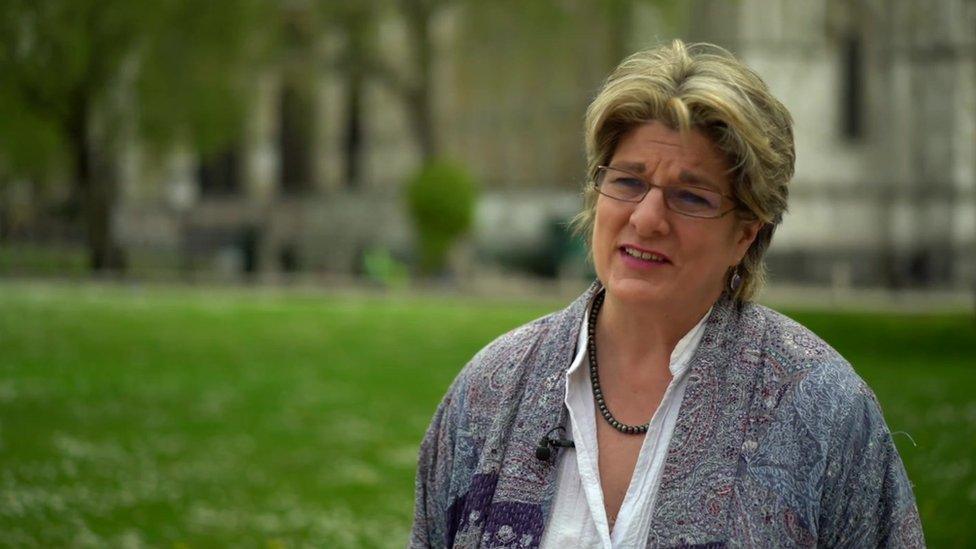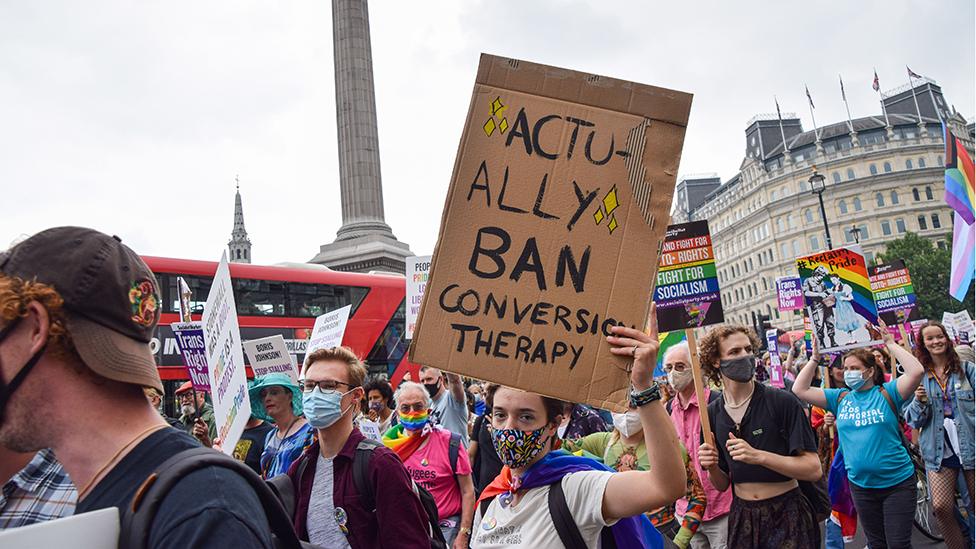Conversion therapy ban: Campaigners dismayed over delay
- Published
Conversion therapy: 'I lost the ability to experience joy'
Campaigners have called on the government to stop delaying the ban of so-called conversion therapy.
The ban for England and Wales was announced in the Queen's Speech - but it will be preceded by a consultation.
It will consider religious freedoms and how to protect accredited professionals in a move welcomed by some groups.
A document signed by a number of health groups defined conversion therapy, external as the attempt to change someone's sexual orientation or gender identity.
Some campaigners were disappointed that the government did not announce an immediate and wide-ranging ban on the practice.
LGBT rights charity Stonewall says the practice must be banned in all forms "including religious and faith-based settings", and that any delay leaves LGBT groups "at further risk of abuse".
Jayne Ozanne, a former government equality adviser who underwent conversion therapy, agrees.
"We've had three years of talking," she said.
"What we really need is action that will protect young and old LGBT people right now, not this Groundhog Day of constantly being told that we're going to consult and listen."

Former equality adviser Jayne Ozanne says action is needed "right now"
The Royal College of Psychiatrists said it would be taking part in the consultation to "highlight why conversion therapy is both unacceptable and harmful" and to "ensure clinicians can still help people fully explore their gender identity where appropriate".
The ban - which was first pledged in 2018 - is set to include both sexuality and gender identity in its definition, and will protect people from "coercive and abhorrent practices".
But the government has said the short consultation will be held before the legislation is published, asking the public and interested parties how best to address the problem while still "protecting the medical profession, defending freedom of speech, and upholding religious freedom".
It also said it wants "legitimate forms of pastoral support" to be allowed to continue, including prayer to help someone explore their sexual orientation or gender identity.
The Evangelical Alliance, which represents 3,500 churches, said it welcomed the consultation process.
"We want to avoid the situation where a person can be accused of conversion therapy for praying with someone who freely chooses and asks for prayer," Peter Lynas, the group's UK director, said.

A number of health organisations and patient groups signed a document in 2017 warning, external all forms of conversion therapy were "unethical and potentially harmful".
The practice can take many forms, some of which - like "corrective" rape - are already illegal.
About 5% of the 108,000 people who responded to a 2018 LGBT government, external survey said they had been offered some form of conversion therapy, while 2% had undergone it.
More than half said it was conducted by a faith group, while one in five received it from healthcare professionals.
As well as the ban in England and Wales, a support fund for victims of the practice will be made available.
Northern Ireland has passed a non-binding motion calling for a ban on gay conversion therapy "in all its forms".
The Scottish government "fully supports moves by the UK government to end conversion therapy", a spokesperson said.
- Published20 September 2024
